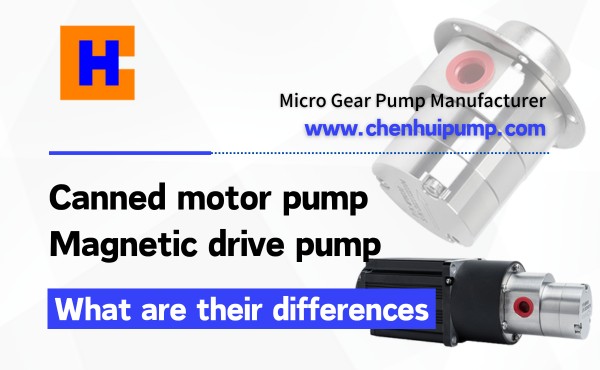Magnetic drive pumps deliver reliability through their innovative design. These pumps eliminate the need for mechanical seals, ensuring leak-free operation. Their ability to handle hazardous fluids safely makes them indispensable in industries requiring precision. While their pros and cons include durability and higher costs, their unique features often outweigh traditional pump limitations.
Key Takeaways
- Magnetic drive pumps do not leak, so they are great for safely moving dangerous liquids.
- These pumps need little upkeep and last a long time, which helps businesses save on repairs and avoid delays.
- They cost more at first, but they save money later because they use less energy and are very strong.
Advantages of Magnetic Drive Pumps
Leak-Free Operation
Magnetic drive pumps excel in providing a leak-free operation. Unlike traditional pumps, they eliminate the need for mechanical seals, which are prone to wear and tear. This seal-less design prevents fluid leakage, making these pumps ideal for industries handling sensitive or dangerous materials. By ensuring a closed system, they reduce environmental risks and enhance workplace safety.
Low Maintenance and Long Lifespan
Seal-less pumps require minimal maintenance compared to their sealed counterparts. The absence of mechanical seals eliminates a common failure point, reducing downtime and repair costs. Additionally, magnetic drive pumps are built with durable materials, ensuring a longer operational lifespan. This reliability makes them a cost-effective choice for businesses aiming to minimize maintenance efforts.
Safe Handling of Hazardous and Corrosive Fluids
Magnetic drive pumps are specifically designed to handle hazardous fluids safely. Their leak-free operation ensures that harmful substances remain contained, protecting both workers and the environment. These pumps also resist corrosion, making them suitable for transporting aggressive chemicals. Industries such as pharmaceuticals and petrochemicals often rely on them for this reason.
Energy Efficiency and Cost-Effectiveness Over Time
Although magnetic drive pumps may have higher upfront costs, they offer energy efficiency that translates into long-term savings. Their design reduces energy loss during operation, making them more efficient than traditional pumps. Over time, the reduced energy consumption and lower maintenance costs offset the initial investment, providing excellent value.
Durability in Industrial Applications
Seal-less pumps are built to withstand demanding industrial environments. Their robust construction allows them to operate under challenging conditions without compromising performance. Industries requiring continuous operation, such as manufacturing and chemical processing, benefit from their durability and reliability. This makes them a trusted solution for heavy-duty applications.
Disadvantages of Magnetic Drive Pumps
Higher Initial Investment
Magnetic drive pumps often require a higher upfront investment compared to traditional pumps. Their advanced design and specialized materials contribute to this cost. For businesses with tight budgets, this initial expense may seem prohibitive. However, the long-term savings from reduced maintenance and energy efficiency can offset this cost over time.
Limited to Specific Temperature and Pressure Ranges
These pumps operate effectively within specific temperature and pressure ranges. Extreme conditions can compromise their performance or cause damage. For example, high temperatures may weaken the magnets, reducing their efficiency. Industries requiring pumps for extreme environments may need to explore alternative options.
Risk of Magnetic Decoupling
Magnetic decoupling occurs when the magnetic connection between the drive and the impeller breaks. This can happen if the pump operates under excessive load or pressure. When decoupling occurs, the pump stops functioning, potentially leading to downtime. Proper monitoring and adherence to operational limits can minimize this risk.
Inability to Handle Solids Effectively
Magnetic drive pumps are not designed to handle fluids containing solids. Solids can cause blockages or damage the internal components. Applications requiring the transfer of slurry or particulate-laden fluids may need a different type of pump.
Potential Overheating and Damage from Dry Running
Dry running poses a significant risk to magnetic drive pumps. Without fluid to cool and lubricate the internal components, the pump can overheat and sustain damage. Installing sensors to detect dry running can help prevent this issue.
Higher Power Absorption Compared to Traditional Pumps
Magnetic drive pumps may absorb more power than traditional pumps due to the magnetic coupling mechanism. This can slightly increase operational costs in some cases. Businesses should evaluate their energy requirements to determine if this trade-off is acceptable.
Conclusion
Magnetic drive pumps provide a reliable solution for industries requiring leak-free operation and safe handling of hazardous fluids. Their low maintenance and durability make them ideal for specific applications. However, businesses must evaluate their operational needs and budget. Understanding the pump’s limitations ensures it aligns with long-term goals and application requirements.
FAQ
What industries benefit most from magnetic drive pumps?
Industries like pharmaceuticals, petrochemicals, and chemical processing benefit greatly. These pumps handle hazardous fluids safely and operate efficiently in environments requiring leak-free systems.
Can magnetic drive pumps handle high-viscosity fluids?
Magnetic drive pumps can handle low to medium-viscosity fluids effectively. High-viscosity fluids may reduce performance, so evaluating the pump’s specifications is essential for such applications.
How can users prevent dry running in magnetic drive pumps?
Installing dry-run protection sensors helps prevent damage. These sensors detect when the pump operates without fluid and shut it down automatically to avoid overheating.
Partner With CHENHUI for High Quality Micro Gear Pumps
CHENHUI’s micro gear pumps provide precise, reliable, and leak-free fluid transfer. These pumps are ideal for chemical processing, medical dosing, and laboratory use. The magnetic coupling eliminates the need for traditional shaft seals, preventing leaks and reducing maintenance costs.
The advanced magnetic drive system ensures smooth torque transmission without direct mechanical contact, minimizing wear and extending pump life. These pumps offer stable flow control, handling a wide range of fluids, including corrosive and high-purity liquids. Available in different flow rates and material options, they can be customized to meet specific industrial needs.
You can purchase a standalone micro gear pump or a complete pump-and-motor unit for easy installation. Upgrade your fluid handling system with Chenhui’s high-quality micro gear pumps. Contact us today to find the best solution for your application!
BUY MICRO MAGNETIC DRIVE PUMPS HERE





















